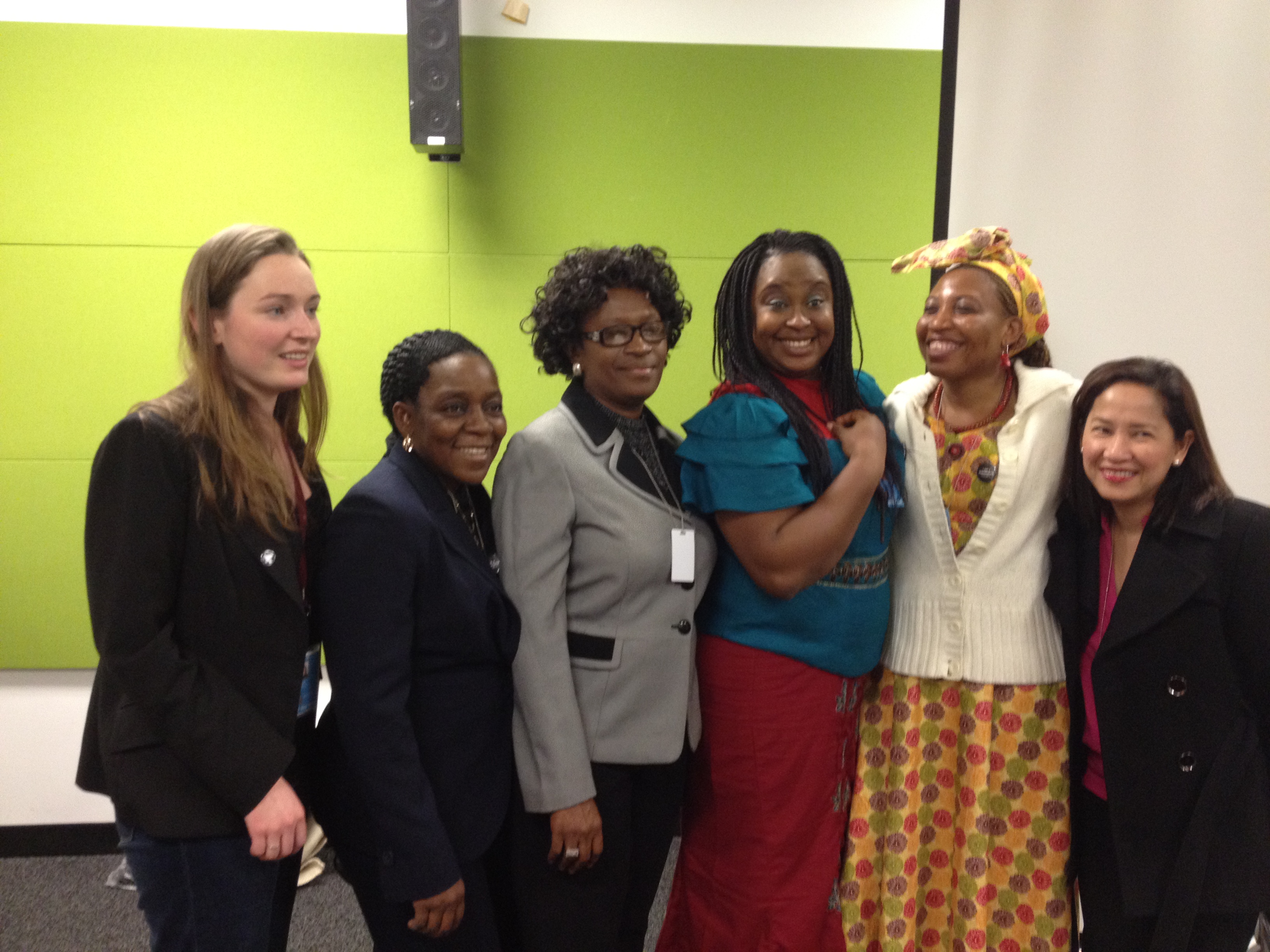WILPF CSW 56: Human Security for Rural Women in Nigeria - using SCR 1325
There is an urgent and undeniable crisis in Nigeria as violence increases and the risk of conflict continues to escalate. In October 2011 WILPF-Nigeria issued a statement, which called for specific and immediate action to prevent insecurity, promote equality and protect women's rights. The 56th Commission on the Status of Women 2012 gave an opportunity to gather women's groups from all over Nigeria to call advance these calls for change and action. 
On February 29 2012, the third day of the CSW, Women's International League for Peace and Freedom organized a panel discussion at UN headquarters on important and urgent theme of “Human Security for Rural Women in Nigeria - using SCR 1325” The panel consisted of Joy Onyesoh, President of WILPF-Nigeria; and Adanna Baldwina, WILPF-Nigeria National Co-ordinator; Joy Ezeigbo, International Federation of Women Lawyers Nigeria, Dr. Frances Ajose, Medical Women's Association of Nigeria; and Kachollom C.S. Best, Young Women Christian Association. Mavic Cabrera-Balleza, International Coordinator, Global Network of Women Peacebuilders, moderated the discussion.
The panel discussed the current situation and focused on prevention of increased conflict, and the promotion of human security and women's rights and participation in Nigeria. There was special attention given to the situation of rural women and the
challenges they face, given the theme of CSW 56. Nigeria may not be classified as a situation of armed conflict but the reality presented at the panel showed otherwise. Adanna and Joy from WILPF Nigeria underlined that there must be emphasize on real human security including address corruption at every level in Nigeria rather than the narrow focus on national security. WILPF-Nigeria presented their current and upcoming projects including: Partners of 1325 (national action plan coalition), Team
2015 (women's participations in election), and national conference on women's rights.
The three guest panelists addressed the current issues from legal, medial and sociology perspectives. Kachollom Best Comfort, YWCA, responded to questions about perceived religious divisions and called for unity among and between women's groups of all faiths. She reminded us that the high levels of violence in rural communities affects those living in towns and villages as in Nigeria the majority of people have rural connections. She also raised the issue of food security as agricultural work concerns mostly women: ownership is by kinship so when people become displaced or killed they cannot pick up their work again or food is cut off for everyone else because there are not enough hands to tend to the crops.
From the perspective of women lawyers, Joy Ezwigbo, FIDA, emphasized the importance of awareness raising and the promotion and protection of women's rights, especially when it comes to rural women since they often lack physical and economic resources. FIDA offers free legal services to indigenous women and also defends women's political mandates.
Dr Francis Ajose, Medical Women Association of Nigeria, underlined the importance to have a comprehensive health perspective in a national action plan for 1325 since women's health is a part of their human security. She linked the issue of lack of health to lack of education. Rural women are isolated and without education women's health issues such as cervical or breast cancer and malnourishment often gets overlooked. She also added the dimension of water security to the Nigerian context. Diarrheal diseases are a huge problem because of a lack of potable water.
All of the panelists agreed that patriarchal, hetero normative and discriminatory contexts shape the way in which women human rights defenders work. They also connected the issue of corruption with the lack of women's participation and effective implementation of laws. Violence against women including domestic violence was also mentioned as a priority issues that must be addressed at local and national level. In addition to discussing the current realities, panelist also outlined recommendations and actions relating to the political situation in Nigeria and SCR 1325. “We urgently need action and to move forward the process of formulating and drafting a comprehensive National Action Plan on implementation of SCR 1325 in Nigeria”, stated Joy Onyesoh, WILPF-Nigeria President. All panelists agreed with this concrete and constructive recommendation and committed to working together in coalitions for a NAP for 1325 in Nigeria with the overarching purpose of increasing the human rights and
security for all women of Nigeria. The development of a NAP for 1325 in Nigeria is also a fundamental condition to the immediate need for all stakeholders to come together to push forward concrete and time bound action plans on developing a
comprehensive human security agenda in Nigeria. Women have to be equal partners in pushing forward this agenda, bearing in mind that in our various cultural settings in Nigeria women have long played tangible and specific role in peace processes.
